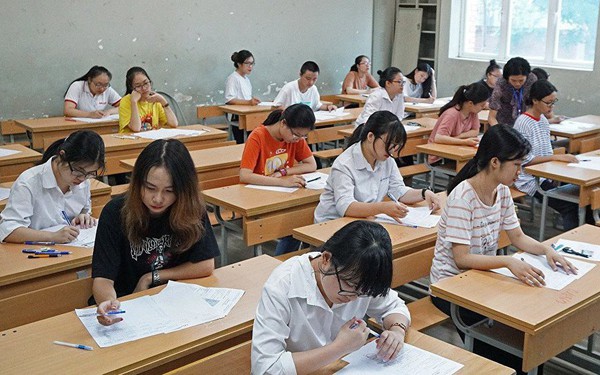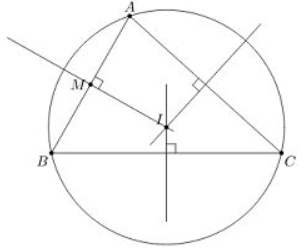UNIT 11: Changing roles in society
- TỪ VỰNG
|
application /ˌæplɪˈkeɪʃn/ (n) việc áp dụng, ứng dụng - The design has many applications. (Thiết kế có nhiều ứng dụng) |
|
attendance /əˈtendəns/ (n) sự tham gia - Attendance at the meeting was rather thin. (Sự tham dự của cuộc họp khá ít) |
|
breadwinner /ˈbredwɪnə(r)/ (n) trụ cột gia đình - Men are often expected to be the breadwinner in a family. (Đàn ông thường được cho là người trụ cột trong gia đình) |
|
burden /ˈbɜːdn/ (n) gánh nặng - The little donkey struggled under its heavy burden. (Con lừa nhỏ đấu tranh dưới gánh nặng của chính nó) |
|
content /kənˈtent/ (adj) hài lòng - I'd be content with a modest income. (Tôi hài lòng với một thu nhập vừa phải) |
|
externally /ɪkˈstɜːnəli/ (v) bên ngoài - This medicine is for externally use only and should not be taken internally. (Thuốc này chỉ dùng cho bên ngoài và không nên dùng cho bên trong) |
|
facilitate /fəˈsɪlɪteɪt/ (v) tạo điều kiện dễ dàng, điều phối - To facilitate learning, each class is no larger than 24 students. (Để tạo điều kiện học tập, mỗi lớp không quá 24 học sinh) |
|
financial /faɪˈnænʃl/ (adj) [thuộc về] tài chính -The current financial and economic crisis is exacerbating the problem. (Cuộc khủng hoảng tài chính và kinh tế hiện tại đang làm trầm trọng thêm vấn đề) |
|
hands-on /hændz-ɒn/ (adj) thực hành, thực tế, ngay tại chỗ -As a manager, she was always very hands-on. (Là một người quản lý, cô ấy luôn chú trọng thực hành) |
|
leave /liːv/ (n) nghỉ phép - I'm taking a week's unpaid leave. (Tôi đang nghỉ một tuần không lương) |
|
male-dominated /meɪl-ˈdɒmɪneɪtɪd/ (adj) do nam giới áp đảo -In the past, the mastership is male-dominated. (Trong quá khứ quyền hành do nam giới thống trị) |
|
responsive /rɪˈspɒnsɪv/ (adj) phản ứng nhanh nhạy - The tablet has a good battery life and is very responsive to screen taps. (Máy tính bảng có tuổi thọ pin tốt và rất nhạy với các vòi màn hình) |
|
role /rəʊl/ (n) vai trò - Schools play an important role in society. (Các trường học đóng một vai trò quan trọng trong xã hội) |
|
sector /ˈsektə(r)/ (n) mảng, lĩnh vực - Much of the workforce in the banking sector is affected by the new legislation. (Phần lớn lực lượng lao động trong lĩnh vực ngân hàng bị ảnh hưởng bởi luật mới) |
|
sense (of) /sens/ (n) tính, giác quan - My cold is so bad I've lost my sense of smell. (Cảm lạnh của tôi tệ đến mức tôi đã mất khứu giác) |
|
sole /səʊl/ (n) độc nhất - She has sole responsibility for the project. (Cô có trách nhiệm độc nhất cho dự án) |
|
tailor /ˈteɪlə(r)/ (v) biến đổi theo yêu cầu - Their services are tailored to clients’ needs. (Dịch vụ của họ được điều chỉnh theo nhu cầu của khách hàng) |
|
virtual /ˈvɜːtʃuəl/ (adj) ảo - She was a virtual unknown before this movie. (Cô ấy là một người còn mơ hồ về bộ phim này) |
|
vision /ˈvɪʒn/ (n) tầm nhìn - We lack a vision of what love really is. (Chúng tôi thiếu một tầm nhìn về tình yêu thực sự là gì) |
- NGỮ PHÁP
- Cách chuyển sang câu bị động
- Muốn chuyển một câu chủ động sang câu bị động, ta thực hiện như sau:
+ Lấy tân ngữ (O) trong câu chủ động làm chủ ngữ (S) trong câu bị động.
+ Động từ V(A) đổi sang V(P). Chú ý thì của câu luôn không đổi, động từ be phải phù hợp với chủ ngữ và thì của câu.
+ Chủ ngữ S(A) trong câu chủ động trở thành tân ngữ O(P) đứng sau by trong câu bị động. Nếu không cần thiết làm rõ chủ ngữ gây ra hành động thì có thế lược bỏ đi cụm từ by + tân ngữ.
- Câu bị động qua các thì
|
THÌ |
THỂ BỊ ĐỘNG |
|
Hiện tại đơn (Present simple) |
am/ is/ are + V3/ed Hanoi is visited by a lot of tourists. |
|
Quá khứ đơn (Past simple) |
was/ were + V3/ed Hanoi was visited by a lot of tourists. |
|
Tương lai đơn (Future time – will) |
will + be + V3/ed Hanoi will be visited by a lot of tourists. |
|
Hiện tại tiếp diễn (Present continuous) |
am/ is/ are + being + V3/ed Hanoi is being visited by a lot of tourists. |
|
Quá khứ tiếp diễn (Past continuous) |
was/ were + being + V3/ed Hanoi was being visited by a lot of tourists. |
|
Tương lai dự định (Future time – be going to) |
am/ is/ are + going to + be + V3/ed Hanoi is going to be visited by a lot of tourists. |
|
Hiện tại hoàn thành (Present perfect simple) |
has/ have + been + V3/ed Hanoi has been visited by a lot of tourists. |
|
Quá khứ hoàn thành (Past perfect simple) |
had + been + V3/ed Hanoi had been visited by a lot of tourists. |
|
Động từ khuyết thiếu (Modal verbs) |
modal verb + be + V3/ed Hanoi should be visited by a lot of tourists. |
- Bảng chủ ngữ và tân ngữ tương ứng.
|
Chủ ngữ (S) |
=> |
Tân ngữ (O) |
|
I |
=> |
Me |
|
We |
=> |
Us |
|
You |
=> |
You |
|
He |
=> |
Him |
|
She |
=> |
Her |
|
It |
=> |
It |
|
They |
=> |
Them |
- BÀI TẬP LUYỆN TẬP
# Change the following sentences into passive voice
1.They gave a job to Amy and Bob.
A) Amy and Bob are given a job.
B) A job was given to Amy and Bob.
C) Amy and Bob was given a job.
D) A job were given to Amy and Bob.
2.They started the work last week.
A) The work was started last week.
B) The work are started last week.
C) The work were started last week.
D) The work is started last week.
3.They finished the kitchen’s building on Saturday.
A) The kitchen’s building was finished on Saturday.
B) The kitchen’s building were finished on Saturday.
C) The kitchen’s building is finished on Saturday.
D) The kitchen’s building are finished on Saturday.
4.Somebody calls the president everyday.
A) The president was called every day.
B) The president are called every day.
C) The president is called every day.
D) The president were called every day.
5.Last Thursday we pointed a new marketing manager.
A) A new marketing manager is pointed last Thursday.
B) A new marketing manager were pointed last Thursday.
C) A new marketing manager are pointed last Thursday.
D) A new marketing manager was pointed last Thursday.
6.William and the conqueror built the castle in the 11th century.
A) The castle are built by William and the conqueror in the 11th century.
B) The castle were built by William and the conqueror in the 11th century.
C) The castle was built by William and the conqueror in the 11th century.
D) The castle is built by William and the conqueror in the 11th century.
7.People believed that somebody murdered Miss. Stone.
A) It is said that Miss. Stone was murdered.
B) It were said that Miss. Stone was murdered.
C) It was believed that Miss. Stone was murdered.
D) People believed that Miss. Stone murdered.
8.We put a notice about the trip on the notice board yesterday.
A) A notice about the trip on the notice board put yesterday.
B) A notice about the trip on the notice board was put yesterday.
C) A notice about the trip on the notice board is put yesterday.
D) A notice about the trip on the notice board are put yesterday.
9.People think that an apple a day is good for you.
A) It is thought that an apple a day is good for you.
B) It was thought that an apple a day is good for you.
C) They are thought that an apple a day is good for you.
D) They thought that an apple a day is good for you.
10.The cold weather damaged the plants.
A) The plants were damaged by the cold weather.
B) The plants was damaged by the cold weather.
C) The plants are damaged by the cold weather.
D) The plants is damaged by the cold weather.
11.They were doing the bedroom on Friday.
A) The bedroom were being done on Friday.
B) The bedroom is done on Friday
C) The bedroom was being done on Friday
D) The bedroom are done on Friday
12.They’re painting the living room now.
A) The living room is painting now.
B) The living room is painted now.
C) The living room is being painting now.
D) The living room is being painted now.
13.Martha was delivering the documents to the department.
A) The documents was being delivered to the department by Martha.
B) The documents was delivered to the department by Martha.
C) The documents was being delivering to the department by Martha.
D) The documents is being delivered to the department by Martha.
14.The mayor is going to open a new airport.
A) A new airport is goi
ng to opened by the mayor.
B) A new airport is going to open by the mayor
C) A new airport is going to be opened by the mayor
D) A new airport is going to be open by the mayor
15.If you can’t drive, who is going to drive your car?
A) If you can’t drive, who is going to be driven your car?
B) If you can’t drive, by whom is your car going to be driven?
C) If you can’t drive, whom is your car going to be driven?
D) If you can’t drive, who your car is going to drive?
##GỢI Ý:
- B
- A
- A
- C
- D
- C
- C
- B
- A
- A
- C
- D
- A
- C
- C
- TIPS
- Học thuộc từ vựng về nghĩa và cách phát âm, trọng âm
- Làm nhiều bài tập về câu điều kiện loại 3 để nắm vững ngữ pháp
- Làm bài tập vận dụng, tự chấm sau đó đối chiếu đáp án, lời giải thích, rồi từ đó để hiểu sâu hơn.







